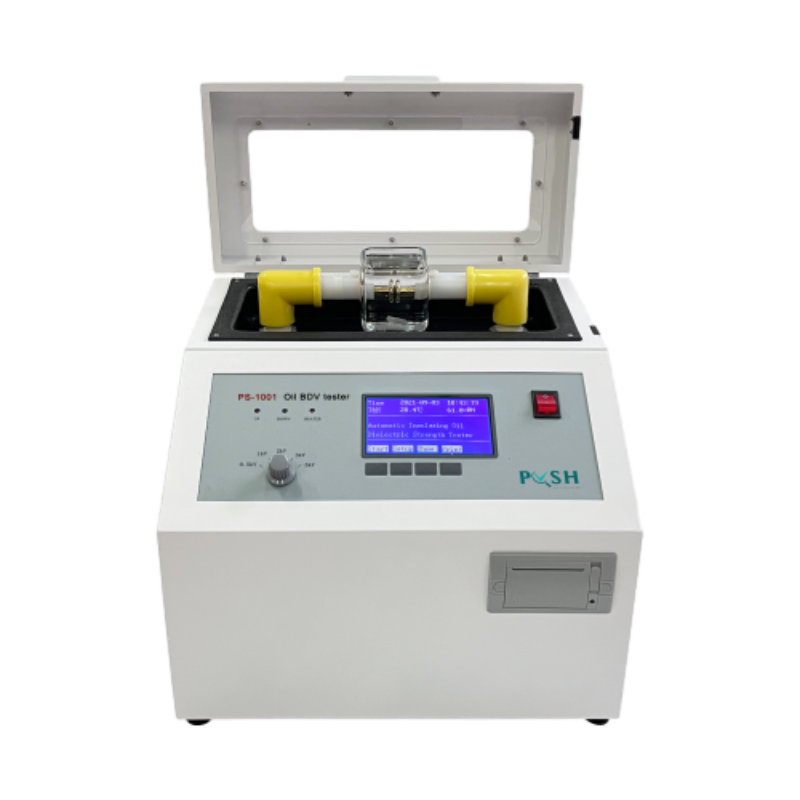 English
English


Ground Loop Testing Equipment for Enhanced Electrical Performance and Safety Solutions
Understanding Ground Loop Testers A Key Tool for Electrical Safety
Ground loop testers are indispensable instruments used in the realm of electrical engineering and safety. These devices are primarily employed to ensure that the grounding systems of electrical installations are functioning correctly. In this article, we will delve into what ground loop testers are, how they work, and their importance in maintaining safety and reliability in electrical systems.
What is a Ground Loop Tester?
A ground loop tester is a device designed to measure the resistance of grounding systems. These testers can evaluate the effectiveness of grounding electrodes, assess the integrity of ground connections, and detect ground loops that may cause interference in electronic equipment. Ground loops can lead to voltage differences that may disrupt the performance of sensitive electronics, such as audio and video equipment, leading to noise, hum, or even complete malfunctions.
How Do Ground Loop Testers Work?
The main function of a ground loop tester is to measure resistance in the grounding path. Typically, these devices operate by passing an electric current through the ground connection and measuring the voltage drop across it. The tester provides a digital readout of the resistance in ohms, allowing the technician to determine if the ground connection is functioning properly according to industry standards.
Most ground loop testers come equipped with various features. Some can perform tests at different frequencies, which can help identify specific types of ground loop conditions. Advanced models may include storage capacity for recording measurements over time and data transfer capabilities to a computer for detailed analysis. Knowing the resistance value is critical; a resistance value of less than 5 ohms is generally a good benchmark for effective grounding.
ground loop tester

Importance of Ground Loop Testing
1. Electrical Safety Ground loop testers play a crucial role in ensuring electrical safety. A poor grounding system can lead to electric shocks, equipment damage, and even fire hazards. Regular testing helps in identifying issues before they become severe.
2. Equipment Performance In settings like commercial audio-visual installations, the presence of ground loops can degrade sound quality and overall system performance. By using a ground loop tester, technicians can ensure that the installation is free from interference caused by inadequate grounding.
3. Regulatory Compliance Various electrical codes and standards demand that grounding systems are tested periodically to verify their effectiveness. Compliance with these regulations not only ensures safety but also shields organizations from potential legal liabilities.
4. Preventative Maintenance Conducting regular ground loop tests is a form of preventative maintenance. This proactive approach allows for identifying and rectifying grounding issues before they cause significant problems, thereby extending the lifespan of electrical systems and reducing downtime.
Conclusion
In summary, ground loop testers are vital tools in the field of electrical safety and maintenance. Their ability to assess grounding systems not only ensures compliance with safety standards but also enhances the performance of electrical installations. As technology continues to advance, these testers are becoming more sophisticated, allowing for greater precision and ease of use. Investing in a quality ground loop tester ensures that electrical systems remain safe, reliable, and efficient, thus protecting both personnel and equipment in various settings. With the push toward greater electrical safety, understanding the role and functionality of ground loop testers has never been more important.
-
Differences between open cup flash point tester and closed cup flash point testerNewsOct.31,2024
-
The Reliable Load Tap ChangerNewsOct.23,2024
-
The Essential Guide to Hipot TestersNewsOct.23,2024
-
The Digital Insulation TesterNewsOct.23,2024
-
The Best Earth Loop Impedance Tester for SaleNewsOct.23,2024
-
Tan Delta Tester--The Essential Tool for Electrical Insulation TestingNewsOct.23,2024





